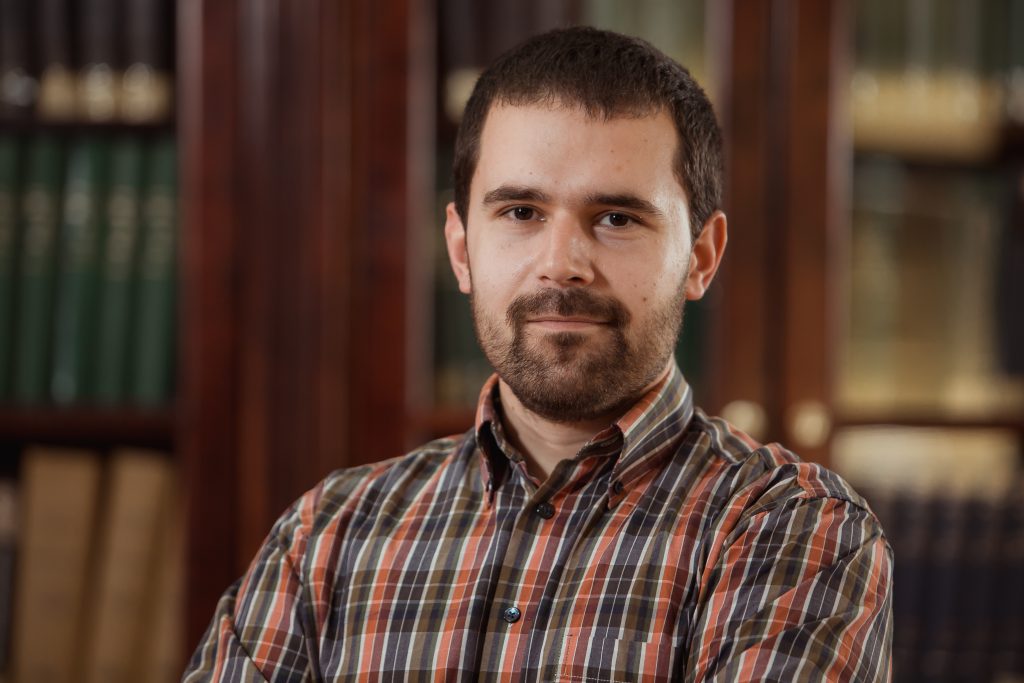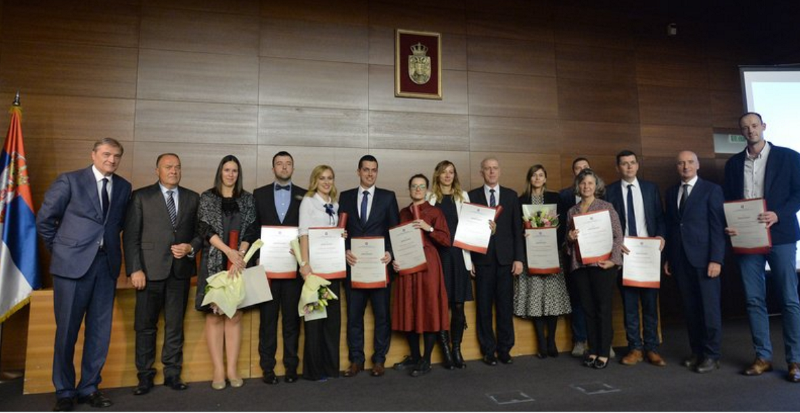
A research associate of the Institute of Physics, Dr Bojan Stojadinović is one of the winners of the Annual Award of the Chamber of Commerce of Serbia for the best doctoral dissertations. He received the award for a paper which deals not only with fundamental scientific issues, but it also finds application of the materials being researched.
Specifically, the Chamber of Commerce awarded 11 dissertations in various fields defended in the school year of 2017/2018, which an expert panel qualified to be ‘a unique scientific contribution’ and have ‘major possibilities of application in the economy and industry’.
The awards were announced on Friday, 29 November 2019, at ‘Klub Poslanika’ establishment, at a ceremony attended by the Minister of Education, Science and Technological Development Mladen Šarčević, as well as numerous economy and science officials.
According to the Chamber of Commerce website, this award is one of the ways to connect science and economy and boost scientific research and results applicable in the economy and industry.
Dr B. Stojadinović’s dissertation entitled ‘The Influence of 4f Dopant on Multiferroic Properties of BiFeO3 Nanostructures’, defended in September 2018, at the Faculty of Physics of the University of Belgrade, was recognized as such. Namely, bismuth ferrite can be used in a new and original manner to develop water purifying technologies.
The mentor of Dr B. Stojadinović’s doctoral dissertation was Dr Zorana Dohčević Mitrović, head of the Laboratory for Nanostructures at the Institute of Physics, Belgrade. It was in this Laboratory that the work on this paper was carried out.
The focus of Stojadinović’s dissertation is directed towards synthesis and investigation of bismuth ferrite in the nanophase. The results of this paper demonstrate that the investigated material can have industrial application in purification of contaminated water, potable water, sensor production, solar cells and computer memory modules.
As stated in the paper description, Stojadinović pays particular attention to the properties of bismuth ferrite which can be used for the production of inexpensive and widely available devices for water purification, as well as to those properties which make it possible to use this material for the production of smart and miniature sensors.





